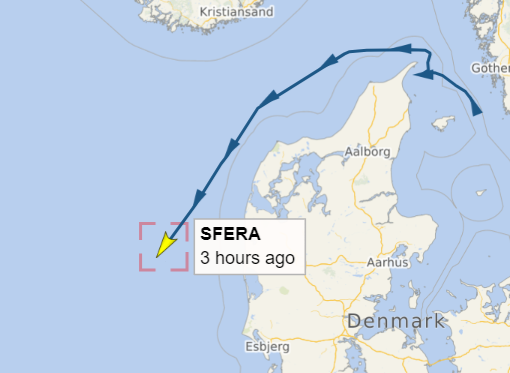 After rendition of a substantial judgment in a matter tried to a magistrate judge, the defendant argued that its consent to proceed before the magistrate judge was invalid, because it was unaware of an allegedly close friendship between the magistrate judge and plaintiff’s counsel at that time. The Fifth Circut held: “[W]e do not have a complete factual record,” noting a lack of information about (1) the full extent of the relationship, (2) the specific disclosures made about it–and when they were made, and (3) whether the defendant unduly delayed in raising its argument about the relationship. IFG Port Holdings LLC v. Lake Charles Harbor & Terminal District, No. 22-30398 (Sept. 21, 2023) (The importance of valid consent was also the focus of a 2021 Fifth Circuit case that reversed after a trial.)
After rendition of a substantial judgment in a matter tried to a magistrate judge, the defendant argued that its consent to proceed before the magistrate judge was invalid, because it was unaware of an allegedly close friendship between the magistrate judge and plaintiff’s counsel at that time. The Fifth Circut held: “[W]e do not have a complete factual record,” noting a lack of information about (1) the full extent of the relationship, (2) the specific disclosures made about it–and when they were made, and (3) whether the defendant unduly delayed in raising its argument about the relationship. IFG Port Holdings LLC v. Lake Charles Harbor & Terminal District, No. 22-30398 (Sept. 21, 2023) (The importance of valid consent was also the focus of a 2021 Fifth Circuit case that reversed after a trial.)
Monthly Archives: September 2023
This blog celebrated its 12th birthday last week. To celebrate properly, you can follow this day-long (?!) recipe to make a festive New Orleans style doberge cake.
A birthday tradition for 600Camp is to recall the 2013 case of Farenco Shipping Co. v. Farenco Shipping PTE, Ltd., which produced the best mootness argument of all time — a case about the seizure of a marine vessel became moot once the ship had sailed.
Shipping Co. v. Farenco Shipping PTE, Ltd., which produced the best mootness argument of all time — a case about the seizure of a marine vessel became moot once the ship had sailed.
The M/V OCEAN SHANGHAI, recently renamed as SFERA, has avoided the Fifth Circuit’s waters ever since; as of September 19, 2023, it had just entered the North Sea to the west of Denmark.
After an accident involving a failed tire, the remains of the tire were transported to the defendant’s trucking facility, after which they vanished. The Fifth Circuit held that the tire’s disappearance created a jury question about bad faith based on “the following circumstantial evidence:”
Prime destroyed the most crucial piece of evidence just weeks after learning that its tire may have caused a car accident; Prime cannot explain why it transported the tire to its Salt Lake facility or what happened to the tire following the accident; and Prime cannot demonstrate it had any formal preservation or retention policy for its equipment, like tires, that may have caused an injury. These circumstances create a fact question on bad faith, necessitating a jury determination.
Van Winkle v. Rogers, No. 22-30638 (Sept. 15, 2023).
A recent Fifth Circuit panel produced three opinions on an organizational-standing issue in Louisiana Fair Housing Action Center, Inc. v. Azalea Garden Props., LLC.
Top-notch legal-writing expert Ross Guberman wrote an insightful LinkedIn post about Judge Elrod’s distinction of authority in her dissenting opinion – I recommend you give it a read!
 The Chitimacha Indian tribe owns a casino. The casino’s former CFO sued the tribe for allegedly violating his civil rights by reporting him to law enforcement. He sued in state court, the defendants removed, and the district judge both denied the CFO’s motion to remand and dismissed the case with prejudice, citing the tribe’s sovereign immunity.
The Chitimacha Indian tribe owns a casino. The casino’s former CFO sued the tribe for allegedly violating his civil rights by reporting him to law enforcement. He sued in state court, the defendants removed, and the district judge both denied the CFO’s motion to remand and dismissed the case with prejudice, citing the tribe’s sovereign immunity.
The Fifth Circuit reversed, noting that the controlling statute (28 USC § 1447(c)) requires that a removed case “shall be remanded” if the court lacks subject matter jurisdiction. Because that language “admits of no exceptions,” it “requires remand even when the district court thinks it futile” (here, because the district court concluded that the same immunity problems would also bar state-court litigation against the tribe.
Further, the dismissal should not have been with prejudice–“it’s precisely because the jurisdiction-less court cannot reach the merits that it also cannot issue with-prejudice dismissals that would carry res judicata effect.” Montie Spivey v. Chitimacha Tribe of Louisiana, No. 22-30436 (Aug. 16, 2023).
 In re Jefferson Parish involved a mandamus petition about the interplay between a putative class action (“Ictech-Bendeck“) with a 500-plaintiff mass action (“Addison“). The Fifth Circuit denied relief, as the opinion’s introduction deftly summarizes:
In re Jefferson Parish involved a mandamus petition about the interplay between a putative class action (“Ictech-Bendeck“) with a 500-plaintiff mass action (“Addison“). The Fifth Circuit denied relief, as the opinion’s introduction deftly summarizes:
… This mandamus proceeding arose because the defendants object to the district court’s scheduling of a small group of Addison plaintiffs for trial before Ictech-Bendeck will finish its class certification process, which the defendants have repeatedly delayed.
Petitioners ask us to stop the Addison trial and to order the district court to rule on class certification in Ictech-Bendeck before allowing any further proceedings in Addison. Petitioners raise the novel theory that under Rule 23 of the Federal Rules of Civil Procedure, the filing of a putative class action bars any possible class members from reaching the merits of their own, separate suits until class certification proceedings conclude in the putative class action. …
… Rule 23 establishes a mechanism for plaintiffs to pursue their claims as a class. It does not cause the filing of a putative class action to universally estop all separate but related actions from proceeding to the merits until the class-certification process concludes in the putative class action, after years of motions practice.
No. 23-30243 (Aug. 24, 2023).
In Louisiana Fair Housing Action Center, Inc. v. Azalea Garden Properties, LLC, “a nonprofit entity with a mission to eradicate housing discrimination in Louisiana” sued when a “tester” used by that entity experienced allegedly unlawful behavior at an apartment complex.
A Fifth Circuit panel (notably, the same panel that found standing in the high-profile mifepristone case) found that the entity lacked standing, but offered three different analyses of that issue:
- The majority opinion found no cognizable injury had been pleaded, remanding with instructions to dismiss without prejudice;
- A concurrence offered additional thoughts about how cognizable injury could be established on remand (either with new allegations, or by adding individual plaintiffs);
- A dissent saw the standing issue as controlled by a 1982 Supreme Court case about a similarly situated housing nonprofit.
No 22-30609 (Sept. 14, 2023).
 A frustrated district court imposed sanctions in Ben E. Keith Co. v. Dining Alliance, Inc., citing the persistent failure of defendant Dining Alliance LLC to identify its members (and thus, allow resolution of the question whether the federal courts had diversity jurisdiction). The sanction included a dismissal with prejudice.
A frustrated district court imposed sanctions in Ben E. Keith Co. v. Dining Alliance, Inc., citing the persistent failure of defendant Dining Alliance LLC to identify its members (and thus, allow resolution of the question whether the federal courts had diversity jurisdiction). The sanction included a dismissal with prejudice.
The defendant protested that the district court lacked jurisdiction to do so (an awkward position, given that the entire problem arose from the defendant’s difficulty with jurisdictional infomation). The Fifth Circuit disagreed:
“A case-dispositive sanction does not require the district court to assess a claim’s merits, weigh the evidence proffered in support of or against them claim, or decide an issue that bears on the claim’s legal substance. It is a purely procedural order.”
The Court observed that Rule 41(b) refers to “the merits,” but noted Supreme Court authority holding that “the phrase on the merits ‘has come to be applied to some judgments … that do not pass upon the substantive merits of a claim.” No. 22-10340 (Sept. 12, 2023).
 CAFA allows remand of a case, otherwise removable under that statute, if the plaintiffs establish that the “local controversy” exception applies. Am element of that exception is that the plaintiffs seek “significant relief” from an in-state defendant.
CAFA allows remand of a case, otherwise removable under that statute, if the plaintiffs establish that the “local controversy” exception applies. Am element of that exception is that the plaintiffs seek “significant relief” from an in-state defendant.
A recurring problem in remedies law is whether “irreparable injury” is shown (and injunctive relief thus justified) when a defendant is insolvent. State of Louisiana v. i3 Verticals, Inc. presents a simlar problem because the in-state party was “a defunct shell with no assets, facilities, business, or employees ….”
The majority held: “The interpretation of the ‘significant relief’ prong is an issue of first impression in our circuit. We begin where we always do—with the text. And all the text requires is that ‘significant relief is sought’ from an in-state defendant. It says nothing about the in-state defendant’s ability to pay.” (citation omitted). The dissent saw that holding as inconsistent with CAFA’s discouragement of artful pleading. No. 22-30553 (Sept. 1, 2023).
 In Self v. BPX Operating Co., the Fifth Circuit confronted a claimed conflict between Louisiana’s forced-pooling laws and a civilian doctrine called “negotiorum gestio,” andi certified (over a dissent) the question to the Louisiana Supreme Court. I was unfamiliar with the doctrine and the case offers this summary for the uninformed attorney from a common-law tradition:
In Self v. BPX Operating Co., the Fifth Circuit confronted a claimed conflict between Louisiana’s forced-pooling laws and a civilian doctrine called “negotiorum gestio,” andi certified (over a dissent) the question to the Louisiana Supreme Court. I was unfamiliar with the doctrine and the case offers this summary for the uninformed attorney from a common-law tradition:
On the other hand, negotiorum gestio—or management of affairs—“is a typically civilian institution that derives from the Romanist tradition and is found in all civil codes.” La. Civ. Code art. 2292 cmt. (a). Negotiorum gestio applies when a person, the manager or gestor, acts 1) without authority, 2) to protect the interests of another, and 3) in the reasonable belief that the owner would approve of the action if made aware of the circumstances. La. Civ. Code art. 2292. The gestor must have “undertake[n] the management with the ‘benefit’ of the owner in mind” and not have “act[ed] in [its] own interest or contrary to the actual or presumed intention of the owner.” Id. cmts. (c)-(d) … Only if all these requirements are met does a person qualify as a gestor such that “[t]he owner whose affair has been managed is bound to fulfill the obligations that the manager has undertaken as a prudent administrator and to reimburse the manager for all necessary and useful expenses.” La. Civ. Code art. 2297. Negotiorum gestio is “rooted in altruism,” and its purpose is to “encourage people to assist friends and neighbors in need.”
No. 22-30243 (Sept. 8, 2023).
Rex Real Estate, a commercial real estate broker, sued Rex Exchange, a facilitator of online home sales. The defendant won judgment as a matter of law at trial, after which the Fifth Circuit affirmed in part and reversed in part. In its opinion, the Court sought to “unconfuse” its precedent about confusion in trademark-infringement cases, reviewing the holdings of its cases and applying the resulting framework to that aspect of the case:
Plaintiff’s anecdotal proof of confusion does not involve swayed customer purchases or initial interest confusion that can result in swayed business. It also does not involve “potential customer[s] considering whether to transact business with one or the other of the parties.” But it has presented instances of potential customers of each respective company mistakenly contacting the other. . These instances are relevant, but their weight is lessened by Plaintiff’s and Defendant’s high volume of business and extensive advertising. Nevertheless, because Plaintiff has presented some relevant evidence of actual confusion, a reasonable jury could conclude that this digit weighs in its favor.
Rex Real Estate I, LP v. Rex Real Estate Exchange, Inc., No. 22-50405 (Sept. 6, 2023) (citations omitted).
 After the matter ended, a health care economist sought to intervene in a qui tam case about medical billing, wanting to challenge a protective order that covered documents in which he had professional interest.
After the matter ended, a health care economist sought to intervene in a qui tam case about medical billing, wanting to challenge a protective order that covered documents in which he had professional interest.
The Fifth Circuit did not rule that he had the right to intervene, but did reverse the district court’s denial of his petition, finding that it had erred on points of law in evaluating his standing, his “claim or defense” that justified intervention, and the timeliness of his petition. U.S. ex rel Hernandez v. Team Finance LLC, No. 22-40707 (Aug. 31, 2023).
The Fifth Circuit reversed the trial court’s dismissal of a case under Fed. R. Civ. P. 19, for problems with party joinder, in PHH Mortgage Co. v. Old Republic Nat’l Title Ins. Co.
The key distinction that led to reversal was this: “The [Texas] trespass-to-try-title statute applies only when ‘the claimant is seeking to establish or obtain the claimant’s ownership or possessory right in the land at issue,'” while “a breach of contract claim against a title insurance company ‘invokes the insurer’s obligation to pay the claim or defend title to the property, and this claim is separate and distinct from the claim of ownership.'” No. 22-50930 (citations omitted).